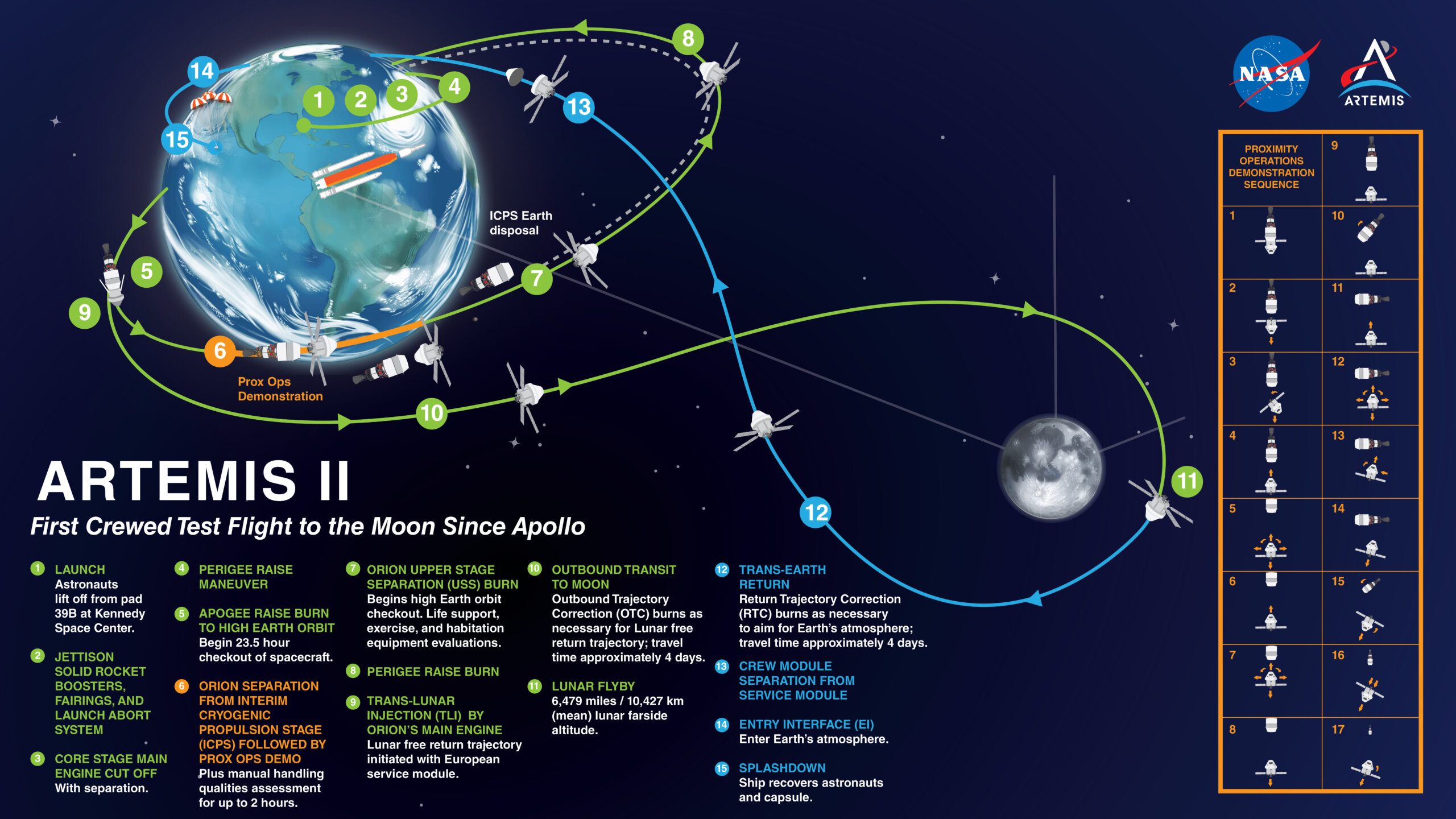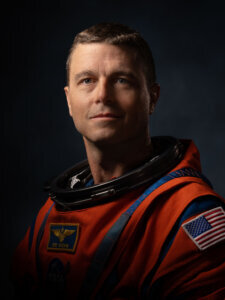This video is no longer available.
NASA astronaut Reid Wiseman likes going fast — always has.
“When I was a kid, I wanted to drive trains,” the Baltimore, Maryland, native said.
After getting into the Navy, Wiseman wanted to fly.
“Then, when I was a pilot, I thought about being an astronaut,” the now Commander of the Artemis II mission to the moon said.
Trains and planes clock out at 300 mph and 2,200 mph respectively. Next year, Wiseman and his crew are set to escape the Earth’s gravitational pull at a blistering 22,600 mph on an Orion spacecraft powered by NASA’s most powerful rocket system.
“Did I ever think I would climb aboard a NASA rocket headed to the moon?” Wiseman said with a laugh. “Absolutely not, that was not in my wildest imagination.”
Artemis II marks a new era of NASA space travel. It’s the first manned mission to the moon’s orbit since 1972 with Apollo 17. Wiseman will lead astronauts Christina Koch, Victor Glover and Jeremy Hansen on a journey around the moon, a key step toward the Artemis III mission, when NASA plans to return to the lunar surface. He said his team is giddy at the idea of their lunar flyby.
“We always talk about when we’re on the far side of the moon, looking back through the moon at Earth and taking that gaze that only 24 people have ever seen in history, and kind of looking at it from the opposite direction,” Wiseman said.

For Wiseman, Artemis II isn’t just about going fast; it’s about laying the foundation for a successful Artemis III moon landing, and ultimately, traveling to the Earth’s closest planet — Mars.
It’s about trying to do the impossible.
“I think by setting the strategy of putting humans on Mars, of really seeing humans working on another planet, you start to make the impossible very, very real and tangible,” Wiseman said. “And I know for certain we will get to Mars.”
Much like 50 years ago, when NASA decided to end its missions to the moon in favor of lower Earth orbit missions due to building costs and waning national desire, astronauts currently face similar questions of whether space travel is worth it, considering climate change, and the high cost and resource use.
Wiseman was quick to argue that space travel is, in fact, key to the survival of our planet and worth every penny.
He noted that the “Earthrise” photo taken during the 1968 Apollo 8 mission inspired Earth Day and ecological movements.

“What we get out of going out and exploring has enormous benefits for us,” Wiseman said. “Sometimes it’s scientific, sometimes it’s just kind of the human mentality, but we will always benefit from doing great things.”
Take the moon, for example. Wiseman said it’s like an unopened time machine of what the Earth was like 4 billion years ago, when a piece of our planet broke off.
“The moon also is our eighth continent, it is made of the same fabric of Earth,” Wiseman said. “We have so much to learn.”
If all goes as planned, Artemis II will launch in November 2024. Wiseman said he can’t wait to get back into space, despite the arduous mission training ahead.
“The first four days, I felt very sick because I hadn’t ever floated in my life,” Wiseman recalled of his first mission into space. “It’s hard to eat and it’s hard to drink and it’s hard to go to the bathroom. But then after four days, it was just truly magnificent. You’re floating the entire time. Things that are impossible on Earth are easy in space.”
When asked if he’s scared to lead NASA’s first trip to the moon in half a century and travel 238,900 miles from Earth, Wiseman was honest.
“There are definitely moments when you get scared,” he said. “I think just like anybody, the first time you’re doing something, you’re a little fearful leaving our planet on a rocket ship. There is a lot of fuel. It’s an aggressive act. But for the most part, I think once you’re doing the act, the fear goes away.”
He then recalled his previous missions into space.
“Two or three days before I get a little nervous,” Wiseman said. “But then once I get on the vehicle, and I start doing the mission, it feels totally normal.”
In the year and a half until the scheduled launch, Wiseman and his crew will train on every aspect of the Artemis II mission. When asked what message he has for those who will look up at the moon as he circles it, Wiseman said he wanted others to find their own mission.
“There’s a large need to help civilization right now,” Wiseman said. “So find your passion, and go change the world.”
Hear the full conversation with Artemis II Commander and NASA Astronaut Reid Wiseman on the DMV Download podcast.








